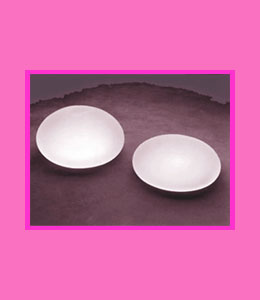
Silicone breast implant life span is a concern for women who undergo breast augmentation and then wonder how long their implant prosthetics will last before they require replacement. Silicone breast implants have suffered many problems in the past, which have reduced their effective life and necessitated implant replacement. Through extensive research and development, today’s silicone implants will outperform previous models exponentially.
This discussion details the expected lifespan of a modern silicone filled breast implant.
Breast Prosthesis Life Span History
The first silicone implants held up very well to the surgical process and rarely leaked once inside the breast. This was due to the heavyweight construction of prototype models and the special care taken with the relatively new surgical procedure.
Once breast augmentation caught on, and became a popular cosmetic option, the quality of the manufactured implants went way down. Second generation implants were much thinner shelled and the filler material was more liquidy. This led to the high incidence of implant failure that resulted in the FDA ban on silicone breast implants in 1992.
Despite the third and fourth generation implants being improved dramatically, the damage was already done to silicone’s image.
Today’s Silicone Breast Implant Life Span
The silicone implants of today are mostly made of cohesive gel. This material does not leak or breakdown even if the outer shell is compromised. In fact, you can cut one of these implants in half without changing it much at all. This is why the cohesive implant is commonly referred to as a gummy bear implant.
Even doctors who continue to use more liquidy gel in their implants, still have a far superior product to work with. Shells are stronger and less prone to leaks. The filler gel is still far thicker and more viscous than fillers in previous model implants.
These factors all add up to improve implant life and resiliency.
Silicone Breast Implant Life Span Expectations
Silicone breast implants can still break. If this is an issue for you, you might want to consider cohesive gel implants that will not leak or deflate, even if the shell is compromised.
Silicone has not been shown to cause any specific health effects due to rupture, but implant failure will still often warrant replacement. Once again, cohesive implants reduce this risk dramatically.
New technology and stronger implants do not guarantee a perfect surgical result, nor do they prevent implant removal from some surgical complication. The most common reasons why patients will have silicone implants removed is capsular contracture, infection or poor aesthetic results.
Make sure to discuss how long your implants will last with your doctor, prior to surgery.



